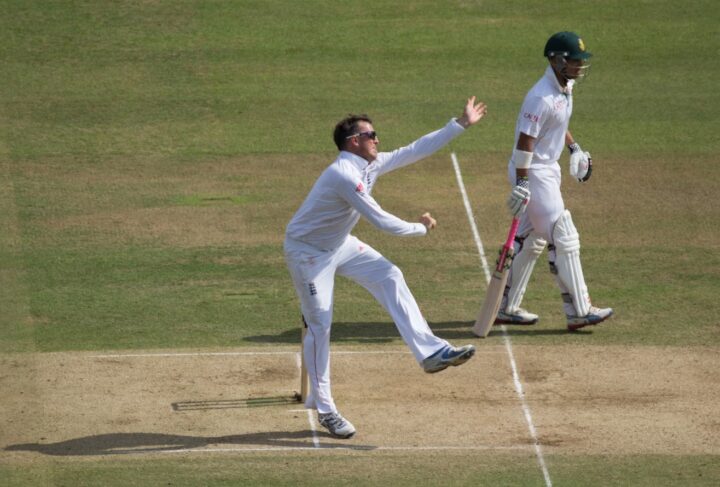The leaked version of the Future Tours programme which reached us last month makes for concerning reading. It provides us with endless contests between the big three of the international game, England, India and Australia, whilst marginalising the rest of the Test playing nations even further than they currently are.
No matter that the tourism from England tours sustains the WICB and Caribbean economies, or that the West Indies toured England at the height of the Covid pandemic when no one else was daring to play cricket across the world. They are not deemed worthy of an England Test tour in the next 5 years. By the time England next tour South Africa it will be 7 years since their previous visit. Kagiso Rabada and Anrich Nortje’s thrilling talents are seemingly not as worthy of our attention as yet another Test series against India or Australia. It’s just as well Donald and Pollock did not play in this era, or they would have been marginalised too.
Cricket is doing everything wrong that football is doing right. At a time when football is expanding its World Cup to 48 teams to open up their game to more of the world, cricket has closed its World Cup off, reducing what was once a 14-16 team tournament to the elite 10 nations in a desperate act of Victorian style protectionism. Ireland, conquerors of England and Pakistan in previous tournaments, were exiled along with other Test nations such as Zimbabwe and emerging, developing countries such as Holland.
As women’s football explodes in popularity and quality, offering a vibrant, affordable alternative to the men’s game, cricket has Greg Barclay, the ICC chair, stating that he does not see “women’s Test matches as part of the landscape moving forwards”. This at a time when by far the most enthralling Ashes Test of last winter was not played by Joe Root and Pat Cummins’ men.
Cricket is obsessed with closing off from the world and reducing its own impact. It is folding in on itself like a dying star. The game is behaving like a nightclub bouncer, refusing entry to the VIP area to all but the richest, most privileged guests.
The words of Ravi Shastri on Sky’s recent debate on the future of the game should strike fear into the heart of any true cricket supporter. According to Shastri, we must reduce the pool of nations with access to the greatest form of our game even further, allowing only the top six nations to play Test cricket so as to maintain the “quality” of the competition. As if quality is more important than accessibility. How are nations going to learn the game if they are not allowed play it? The current World Test Champions New Zealand were once the laughing stock of Test cricket and did not win their first Test match for 26 years. In Shastri’s world, they would never be allowed to.
It is also worth looking at who might miss out under Shastri’s plan. At the moment it would be Sri Lanka, who have just invigorated the Test game with an inspiring win against Australia, whilst ridden with Covid absences and set against the backdrop of a near revolution in their country. It would also be the West Indies, who have contributed more to the story of our great game than almost any other team. Until recently, it would have been England. There have been times in the past when it would have been India.
As for more Tests for Ireland, who humiliated England by bowling them out for 85 at Lord’s a few years ago, or Afghanistan who, in Rashid Khan, possess a bowler who deserves to showcase his skills at the highest level, forget it. Your name’s not on the list, son, you’re not getting in. It is this form of elitist snobbery that is killing our sport almost as much as the blind, Thatcherite greed that pushes players to their mental and physical breaking point as boards pile on endless, meaningless fixtures in the pursuit of ever bigger and better TV deals.
It is fitting that it is the most recent coach of India who has come out with these ideas, for India are at once the saviour and suffocator of our game. The BCCI holds the cricketing world to ransom with the riches of IPL contracts whilst at the same time providing the financial lifeblood of tours from their national side, without which many other national boards would not even break even.
Now we are hearing about the possibility of IPL teams contracting their players all year round in what will surely be another nail in the coffin for the international game. Whilst it would be nearly impossible for the ICC and international boards to combat the growing reach of franchise cricket, the international game is doing far less than it could to ensure its survival. Making Test matches cheaper and more financially attractive to host would be a start.
At the moment Test cricket is eye-wateringly expensive for boards to host and there is a myriad of reasons for this but one thing that the ICC could do is reduce the amount of expensive technology needed to play the game. Why do we need DRS at every Test match ground? The FA does not require lower league clubs to have the expensive battery of cameras and visual equipment needed for the VAR system to operate so there is surely no need for DRS to be in place at smaller Test grounds, many of which are practically out-grounds in all but name. Perhaps the quaint, almost old fashioned idea of taking the umpire’s word for decisions could make a comeback.
There are many things that cricket’s administrators should be doing to make the game more accessible but very few that they actually are. If our authorities and power brokers wait much longer then there may not be a game to save. In 20 years’ time, if Test cricket has disappeared, then we will have to live with the fact that it could have been saved, if only those charged with its survival had cherished it a little bit more.
Billy Crawford









It’s not the only game that’s committing cash cow suicide. With an ever increasing tide of media and sponsorship proving an irresistable draw to a tide of millionaire businessmen eager for a slice of the cudos pie. Soccer and golf are currently pulling themselves apart to just as self destructive a degree as wanna be’s vye for control of their chosen sport. I fully expect more internecine struggles for power in other sports when the killing to be made gets big enough.
Indeed, if the stories on the indecent offers made to Tiger Woods are anywhere near the truth then I tip my hat to him. He has many flaws but it seems he is not prepared to bite the hand that fed him. Good for him.
Right on the money…Ahh, but that is what it really is all about isn’t it. When the dollar is the only value seen from the game this is what one gets.
The dollar is going down the tubes fast – it’s more the petroyuan or bitcoin now.
Billy
I think there is a bit of muddled thinking here – let me do the same with some of my random thoughts !
In most of the smaller countries, home Test series are not particularly wanted because there is not the public appetite for them. ‘Traditional’ Test cricket is increasingly played only by the big three. There has only been one five match Test series this century which didn’t involve England or Australia.
Income from Test series might ‘support’ Caribbean economies, but it doesn’t ‘sustain’ them. The reasons for not touring certain countries does not necessarily reflect an unwillingness to do, rather it often reflects security concerns or more recently of course, Covid.
I am not convinced that we should follow the football model of expanding the World Cup finals (as opposed to the qualifying rounds). Does it benefit the sport to see developing countries being crushed by the more powerful ?
Similarly, I simply don’t buy into your argument about women’s football, and tend to agree with Greg Barclay. If men’s Test cricket is struggling to survive, why should the women’s game be able to do better ? Tickets for the Lord’s Test this year have cost up to £160. What pricing structure do you envisage which would get a Test ground even half full for 4 days of a 5 day women’s Test ?
12 month IPL contracts are indeed a major threat to Test cricket because it will increase the concentration you fear. But handled sensibly by local Boards that need not be the case, especially for England. Instead, of course, we have the madness of the 100 which has the (deliberate) effect of marginalising other forms of the game and encouraging the expansion of IPL based player franchises (needlessly) into the very heart of England’s Test game. Clare Connor’s comments on Stokes and Bairstow’s withdrawal were frankly pathetic. What else did she think was going to happen ?
Having said all that, I totally agree with your valedictory lines.
“In 20 years’ time, if Test cricket has disappeared, then we will have to live with the fact that it could have been saved, if only those charged with its survival had cherished it a little bit more.”
I know that that won’t bother Harrison, but I wonder if it ever gives Graves, Connor or anyone else involved at the ECB in recent years pause for thought ? Sadly, I doubt it.
What did Connor say about Stokes and Bairstow? All I can find is some rather banal, clcihed comments about how the Hundred would be wonderful even without them.
In relation to your last paragraph, I think that’s pretty unlikely too–because they all seem to have bought into the idea that money is the only thing that matters in cricket. So, given that the longer formats are struggling for financial survival (if not yet, at international level, in England) by that logic they’re saving cricket not destroying it, by cutting out some bits which are (and in some cases have been for decades) unprofitable.
That, more than anything, is the attitude that needs to be challenged for me. Because with that attitude it doesn’t even have to be cricket that’s going on in a cricket ground provided it gets punters through the gates–which is rather how the Hundred’s being marketed!
One other point about scheduling: the fly in the ointment, certainly in England and I suspect in most countries, is not the international schedule per se but the number of franchise competitions on top of that. And, of course, boards wanting to carve out windows for them and players prioritising them over international cricket.
England’s schedule, for example, isn’t generally any more onerous than it was almost twenty years ago. In some ways it’s less so–in 2006-11, for example, there were seven ICC tournaments in not much more than four years and in that FTP England were scheduled to play several more tests than they are in the 2023-7 one.
In terms of playing days, today’s cricket is a doddle compared to a few decades ago. look at the schedule for–pulled fairly much at random–England’s winter of 1974-5 or the incoming tour in 1976.
The last time there was a campaign for a Super Three there was a campaign which defeated the proposal. But more working cricketers have to get on board and be prepared to speak up for Test cricket and the Counties.
There has always been a move to reduce numbers of clubs nations or counties in the mistaken idea that this will improve “quality”. But there is no rational or scientific argument for this claim. In fact the opposite holds true: the wider the net the more chance of finding quality. At the moment the running down of cricket opportunities is already ensuring that some would-be talented cricketers will never be discovered. The Afghan lad in Freddie’s Field of Dreams is an example of spreading the net wider. Not so long ago cricket was unknown in Afghanistan.
As for cricket it was once a hugely popular sport in England. Time for the ECB and the cricket business bosses to be scrapped. And time to reflect that Chairman Groves who professed his dislike of Test cricket was a former chairman of Costcutter. That’s the sales pitch for The Hundred. A cheapened version of quality goods. And Shastri talks about maintaining quality. What in the IPL?
I’m not really sure the approach in the last paragraph works for me–it just comes across as too snobbish and closed-minded ro convince anyone who doesn’t already agree. Personally I find T20 fairly boring in general, but I think we’re on somewhat shaky ground if we claim that it’s somehow inherently less pure than other forms of the game. It’s just different–which for me isn’t especially good because I like the rhythms of the longer forms, but others think differently.
And that’s the key I think–HOW are you going to convince the players you’re talking about, or people who go to competitions like the IPL or the Hundred, if all you’re telling them is that they’re uncultured morons because they don’t share your idea of culture? How for that matter are you going to finance the game based only on formats which aren’t making any money?
Because in everyone’s rush to demonise administrators–whose greed, it’s true, has played a large part in bringing us to this situation–we’ve forgotten about two groups of people without whose support all these changes would be impossible.
First, as you say, is players. I would say that we don’t need MORE to come forward to support the counties and the longer formats–we need SOME! I can’t think offhand of a single player who’s turned down the chance to play in a major franchise competition in order to play red-ball other than those who are already very rich indeed. I can’t think of anyone who’s turned down a Hundred contract to play in the Royal London.
And without the active involvement of the players, any move along the lines you’re suggesting is essentially dead in the water. Whenever I say players interviewed, they seem to be saying that they want less cricket (so they’ll be quite happy cutting back the Championship, for example) and to play in front of bigger crowds (so that’ll be the Blast or the Hundred rather than the Championship or the Royal London)
The second is the fans. One comment this week which jumped out at me is that the number of us who responded to the Lancs’ Action Group’s campaign was less than 1% of the number of tickets used in last year’s (or this year’s) Hundred. People overwhelmingly are more likely to go on average to T20 and its offshoots than (especially) red-ball or 50-over. One of this year’s more depressing sights for me was seeing the Saturday of the Roses game–that is, the premier red-ball domestic game in terms of popularity–being played on a grogeous spring day in an 80% empty ground.
It could be different. People could boycott the Hundred and make a determined effort to go to the Royal London–or watch it on the live streams–instead. or go to the Championship. Or in some countries, tests (that’s not an issue which has really arisen in England yet, but I suspect it will before too long). But they’re not.
“It’s just as well Donald and Pollock did not play in this era, or they would have been marginalised too.”
Compare and contrast the number of Tests played in England by Steyn and Philander against Peter Siddle and Ishant Sharma.
I’d also question blaming India for Test cricket’s troubles after Ravi Shastri has shot his mouth off. It needs recalling we’d already have 4-days Tests if it wasn’t for the BCCI’s opposition.
More generally, I agree in large part with Marc Evans. Team sports in general are in trouble, cricket is just a little ahead of the curve (for a supposedly fuddy-duddy game cricket is actually often in the vanguard of change).
Blaming the BCCI is quite a complicated issue I think. On the one hand it’s very easy to turn them into the bad guys–and, like you, I suspect that they’re actually doing more to support tests (and bilateral cricket generally) than some boards. For one thing, other than through the national obsession with Pakistan–which is more driven by the government I suspect, although there’s a certain amount of overlap in influence–they’re one of the few major boards not to effectively blacklist teams like Zimbabwe and Bangladesh.
On the other hand, they are the custodians of 80% of global cricket’s income–and the only way that tests can survive as far as I can see is a massive injection of cash. By default, this has to come from the BCCI–and they’re clearly not interested in providing it. They’re a bit like the millionaire squire in an old-fashioned village who owns every square inch of land: at some point, if the whole village is poor except for the squire, he’s the one who has the power to change it!
Richard Thompson gets the ECB Chairman job. Best news possible !